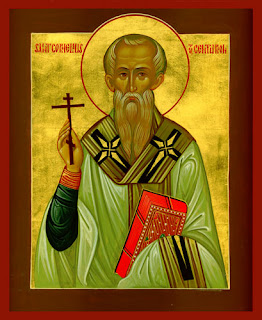Acts 11 - The Infant Gentile Church
Acts 11 - The Infant Gentile Church 1-18: Peter recaps the Gentile conversion and demonstrates that it was the fulfillment of the vision he had of the unclean animals. 19-24: The Church at Antioch is established and Jerusalem sends Barnabas to teach them. Barnabas goes to Tarsus and seeks out Paul and brings him to Antioch where they teach together. And it is here that "the disciples were first called Christians in Antioch." Being Orthodox Christians under the Antiochian jurisdiction we are very familiar with this line of Scripture. It is a point of boasting and is included in our "tag-line" on the Antiochian website . Chrysostom comments on the scattering of the Church due to persecution: When Stephen was slain, when Paul was twice imperiled, when the apostles were scourged…then the nations received (the word), then Samaritans…Therefore, they went about discoursing also with Gentiles. ‘But some them were men of Cyprus and Cyrene, who, after they came to Ant...




